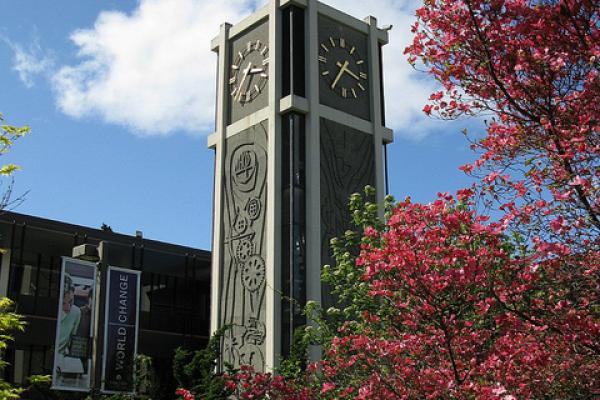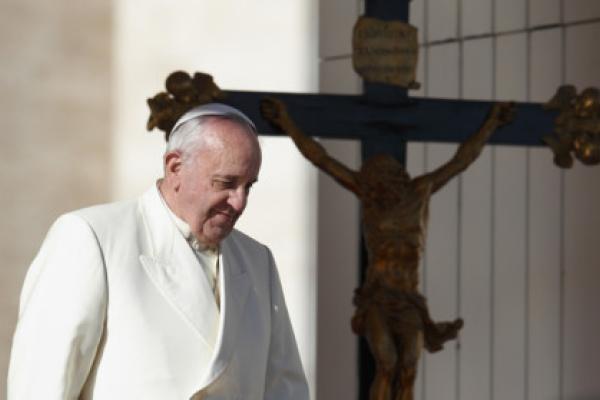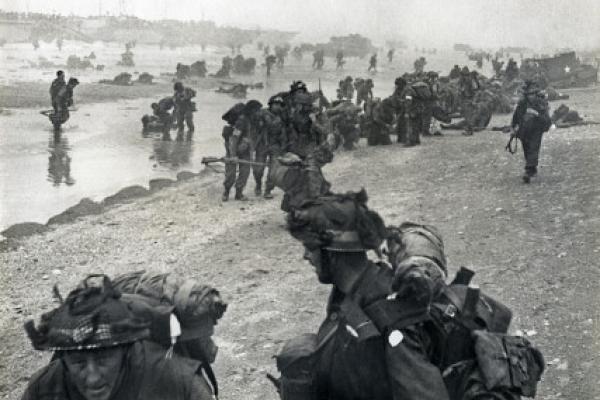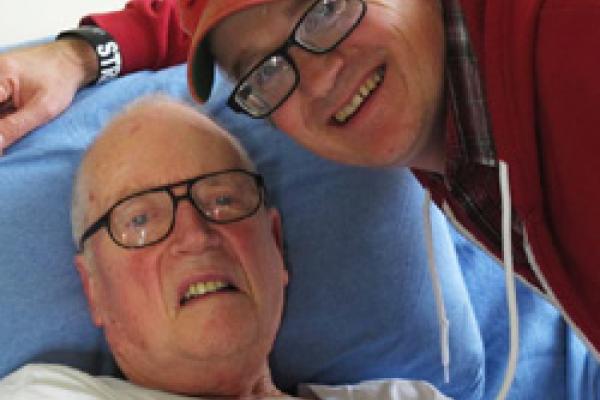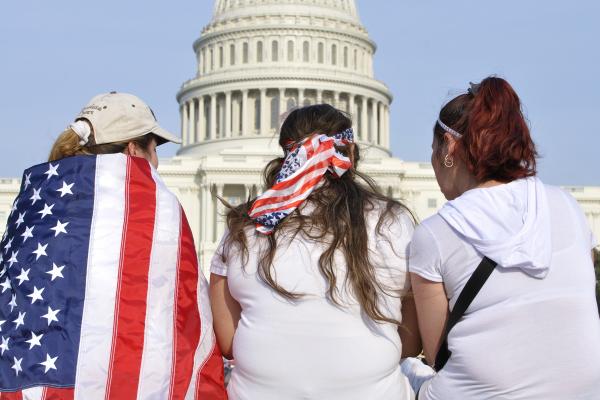One in four individuals will suffer with a mental health issue in a given year — and that these statistics can often be our friends, family, or ourselves. After tragedies like what happened in Isla Vista and on Seattle Pacific’s campus, we listen to the voices of victims’ families and mourn with them as they share stories of their lost loved ones. But we ignore an even more painful story about the lives of the gunmen.
Political talk of moral obligation almost always invokes future children; it is not politically controversial to hope that our children and grandchildren will live on a safe planet. But the moral dimensions of climate change are far more complex and granular: food shortages here, extreme weather events there, floods that displace people in coastal regions, melting polar icecaps causing increased extinctions, the vulnerability of the global poor.
A moral vision able to see these granular risks comes, I would argue, not from time (Obama’s “future children” or the Pope’s “Creation will destroy us”), but from space.
Since 1946, the modern world has been able to view images of the earth from space. Some four millennia earlier, Hebrew scribes penned Genesis 1’s creation account of the whole known world. Ancient and modern, these are two portrayals of the earth, one to begin the Scriptures and one iconic of the modern space age — both spatial lenses offering moral vision about climate change.
“Not one more” was the sentiment and catchphrase of the community in Isla Vista, the town near Santa Barbara where Elliot Rodger shot and killed six people. Christopher Michaels-Martinez, a 20 year-old man, was among the victims and it was his father, Richard, who has passionately enjoined citizens and politicians to enact gun reform.
But it seems inevitable that, when we talk about gun reform, it will always be too little, too late. Yesterday, a gunman opened fire at Seattle Pacific University, a Christian liberal arts college, killing one person and injuring three others. A student named John Meis was working as a building monitor nearby and took advantage of the pause while the shooter reloaded his gun to pepper spray him. Other students and faculty members joined Meis in restraining the shooter until police arrived. The shooter, a 26 year-old man named Aaron Yberra, was armed with a shotgun, a knife, and extra ammunition. He is now in custody.
Pope Francis has been working nonstop since his election more than a year ago, and he has shown remarkable resilience for a 77-year-old confronted with an array of church crises. But he is also fatigued at times and his advisers are hoping that he will take a break this summer.
“We have been asking him to have holidays this year,” Cardinal Oscar Rodriguez Maradiaga of Honduras told reporters during a visit to Washington this week. “Because last year he didn’t and sometimes he’s very tired.”
“So I think that during August he’s going to retire to rest,” said Maradiaga, who heads a kitchen cabinet of eight cardinals from around the world that Francis established as his top advisers.
On this 70th anniversary of D-Day, I thought of my father, who died several years ago. James Emerson Wallis, Sr. was commissioned in the Navy, graduated from college at the University of Michigan, and was married — all on the same June day in 1945! After a very quick honeymoon, my Dad was sent out almost immediately to the Pacific as the engineering officer on a destroyer minesweeper. I heard most about that day, and the days that followed, while sitting with my father on the benches at the World War II Memorial shortly after it opened in Washington, D.C. I soon realized why there were so many benches there — so old war veterans could sit down for a while, even for hours, to remember and tell their stories to the ones they most love.
For his 80th birthday, our family invited my dad to go anywhere in the world he wanted to go. He said he wanted to go to Oxford, England, to see the where his favorite Christian author C.S. Lewis lived — and then he wanted to go to Normandy, where so many of his high school buddies died on D-Day. He wanted to go to those beaches and to that special place himself to see the memorials to his friends. So we did both. My father got to sit at the desk of C.S. Lewis with a big smile on his face. Then I took my dad and my father-in-law to that very solemn place where American and Allied soldiers paid such a heavy human cost in perhaps the most historically significant military action in history.
Just in time for the 70th anniversary of D-Day Friday, the U.S. Senate by unanimous consent passed a bill to include a prayer plaque at the National World War II Memorial in Washington, D.C.
“O Lord, give us Faith,” the prayer reads in part. “Give us Faith in Thee; Faith in our sons; Faith in each other; Faith in our united crusade.” It concludes: “Thy will be done, Almighty God.”
The U.S. House will have to approve the bill, known as the World War II Memorial Prayer Act of 2013, before it heads to President Obama’s desk for his signature. But political pundits say there is little doubt the House will approve the measure since it passed a similar version of the bill last year.
For the better part of the last 30 years, my father has been a social justice activist serving as a leader within his Christian denomination, most specifically in various leadership roles where he could be an advocate for anti-racism education, universal health care, peace with justice in the middle East, and for full inclusion of our LGBTQ family within the body of Christ.
His activism actually dates back further, to the early 1960s when he marched with Dr. Martin Luther King, Jr. in Selma, Ala. His work in the 1990s and 2000s reflected a great depth of thought and commitment as he educated himself and others like him about the importance of recognition of the role of white heterosexual privilege in society and the need for collective repentance for ignoring structural sin regarding race, gender, class, and sexual preference. He worked to transform institutions that might inhibit the full expression of personhood for all of God’s children.
GUN BARREL CITY, Texas (RNS) This place got its name because the main road was straight as a gun barrel. Today, it’s at the center of a fight over gay marriage.
That’s because weekenders Mark Phariss and Vic Holmes, who bought an A-frame house overlooking scenic Cedar Creek Lake four years ago, have become minor celebrities as the men challenging Texas’ ban on same-sex marriage.
Their battle, joined by two women whose Massachusetts marriage the Lone Star State refuses to recognize, is as unlikely as it is uphill. They’ve already won the first round in federal court in San Antonio, where District Judge Orlando Garcia ruled the state’s marriage laws against gay couples “demean their dignity for no legitimate reason.”
As immigration reform gains more and more bipartisan support in Congress, I am encouraged by our lawmakers’ positive steps forward, and I can’t help but think of my own story on immigration.
When I first started working on immigration, I was naïve. My wife and I started ministering to immigrants in 2005, and I thought our work would be all about sharing the Gospel of Christ.
I thought we would share in word and deed and our acts of service would show compassion. I was sure moving to the neighborhood would help make us equal participants in our community together, but certain things would make this nearly impossible.
Climate change is about people, not just science and politics — it is an inter-generational ethics issue. The earth is the Lord’s, and in Genesis, God entrusts us with caring for Creation. The earth that we leave to future generations is already being changed by climate change, and so far, our nation has done little to stop climate pollution. The Clean Power Plan, announced Monday by the EPA, is a great step forward for our country in taking climate change seriously.
The policy will treat carbon the way it should be treated — as a pollutant that’s harming our health and our planet. It will reduce our carbon pollution 30 percent below 2005 levels by 2030, but will allow each state the flexibility to decide how it reaches that goal.
The rule reflects some of the best values we hold dear. It will help prevent premature deaths and asthma attacks caused by smog and other air pollutants. But most importantly, it will reduce the pollution that fuels climate change. It’s clear that President Obama cares about the legacy he leaves to today and into future generations. While there is a lot more that can and should be done by this administration and by Congress, President Obama deserves our appreciation for embracing the common good and taking such a big step to preserve the earth for our grandchildren’s grandchildren.


